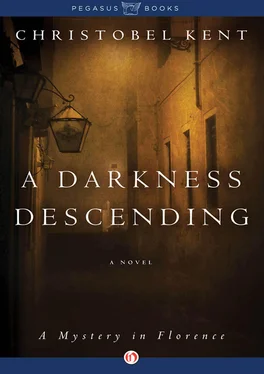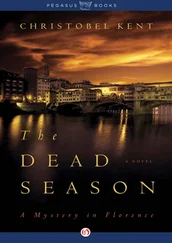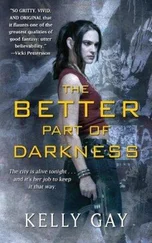Christobel Kent - A Darkness Descending
Здесь есть возможность читать онлайн «Christobel Kent - A Darkness Descending» весь текст электронной книги совершенно бесплатно (целиком полную версию без сокращений). В некоторых случаях можно слушать аудио, скачать через торрент в формате fb2 и присутствует краткое содержание. Год выпуска: 2013, ISBN: 2013, Издательство: Corvus, Жанр: Криминальный детектив, на английском языке. Описание произведения, (предисловие) а так же отзывы посетителей доступны на портале библиотеки ЛибКат.
- Название:A Darkness Descending
- Автор:
- Издательство:Corvus
- Жанр:
- Год:2013
- ISBN:9780857893260
- Рейтинг книги:5 / 5. Голосов: 1
-
Избранное:Добавить в избранное
- Отзывы:
-
Ваша оценка:
- 100
- 1
- 2
- 3
- 4
- 5
A Darkness Descending: краткое содержание, описание и аннотация
Предлагаем к чтению аннотацию, описание, краткое содержание или предисловие (зависит от того, что написал сам автор книги «A Darkness Descending»). Если вы не нашли необходимую информацию о книге — напишите в комментариях, мы постараемся отыскать её.
A Darkness Descending — читать онлайн бесплатно полную книгу (весь текст) целиком
Ниже представлен текст книги, разбитый по страницам. Система сохранения места последней прочитанной страницы, позволяет с удобством читать онлайн бесплатно книгу «A Darkness Descending», без необходимости каждый раз заново искать на чём Вы остановились. Поставьте закладку, и сможете в любой момент перейти на страницу, на которой закончили чтение.
Интервал:
Закладка:
‘They told us it’s something like nervous exhaustion,’ he said, the pouchy, olive-skinned face he turned to them sagging with worry. ‘The tests were all inconclusive. He’s just been overdoing it.’
He ran his hands through hair that lay in oily waves high off his forehead. These idealists, thought Giuli with reluctant disapproval. Grubby, disorganized, chaotic. Does it have to be this way? Enzo was the neatest man she’d ever met, so she knew it didn’t.
‘Overdoing it,’ Sandro repeated. ‘Is that what you think? You know him. You’re — what? His campaign manager?’
Bastone puffed out his cheeks, ran his hands through his hair again. ‘Yes, I suppose I am, something like that.’
‘How long have you known each other?’ Sandro asked, and Giuli leaned forward over her knees at the sound of the careful softness in his voice. She wanted to know how to do that.
The lawyer brightened visibly in response. ‘Oh, a long time,’ he said, and as he smiled, his whole face changed. ‘Since high school, as a matter of fact. We attended the Liceo Machiavelli together. And then we were both at the university, although Niccolo stayed on after I graduated, to get his PhD.’
‘The Machiavelli,’ mused Sandro, and Giuli knew what he was thinking. It had to be the Machiavelli.
The high school was no more than a hundred metres from where they were sitting. One of Giuli’s favourite buildings in the city, a nice palace on the river, a sunny spot, and the school to go to if you were into protest, that was for sure. Its frontage always decorated with graffiti, sheets hung up with painted slogans announcing one student sit-in or other, and a bunch of eager kids running up and down asking passersby for money. They made her laugh … just their youth made her laugh. When Giuli had been seventeen she had been on the streets, but there was something about these nicely dressed, well-nourished teenagers who thought they were fighting for change that she loved. Because they might just be glued to Facebook now or eating ice cream or shopping, but they really were fighting for change — even if they weren’t always sure what they wanted things to change to.
‘Someone has to,’ was what Enzo had said when he’d first talked to her about the Frazione and she’d looked sceptical. ‘You know? Someone has to stand up and get change started. You can’t rely on other people to do it.’
‘So,’ Sandro was saying. ‘You’re close.’
Bastone’s head seesawed in reluctant agreement. ‘Yes,’ he said. ‘As close as — well, as close as it’s possible to be to Niccolo.’ He moved away from the window and sat back down at the table, in shadow, his head between his hands. ‘I’m beginning to wonder, though. If it’s a matter of politics — yes. I know everything about him — where his beliefs came from, what his ideas are on local urban development or fuel emissions or foreign policy or the preservation of the city’s parks or museum entry or prostitution …’ He sighed. ‘But the rest?’
‘So in other words, you don’t know what’s going on,’ said Sandro.
‘I know he’s been working hard — politically, yes. For the last six months, yes, I suppose there’s been more pressure on him, since things took off. A huge amount, battles to fight already, going to city hall with petitions, lobbying the military to delay the permissions on the new road: he likes to get down to the detail. To be hands on. We weren’t exactly prepared. He’s always thrived on it, it didn’t occur to me to think he was overdoing things. But-’ And he stopped speaking again.
In the silence, from below them somewhere in the building, came the bang of a heavy door and the sudden cacophonous echo of raised voices.
‘In his private life, though?’ And Sandro leaned forward on the table that lay between them.
Uneasily Bastone looked towards the solid panelled door, and for the first time Giuli saw that there were things he wasn’t telling them: as Sandro glanced towards her, she could see that he knew, too.
‘I can’t-’ said the lawyer. ‘I can’t-’ And then the door was opened abruptly. A woman stood there in an unbuttoned coat, seventy-five if she was a day but tall, upright, almost masculine in appearance, her white hair pulled back from a strong, raw-boned face and deepset eyes. Bastone started to his feet, his oily hair flopping untidily with the sudden movement. ‘Maria,’ he said, sounding panicky.
‘Carlo,’ said the woman, and Giuli heard impatience and contempt in the way she addressed him. This was a woman used to being cleverer than those around her, even lawyers. She was staring at Sandro and Giuli with undisguised hostility.
Carlo Bastone was looking from the new arrival to his seated guests as if he had no idea how to proceed. Sandro stood up. ‘Sandro Cellini,’ he said stiffly, with a tiny bow.
And the woman folded her arms across her strong, spare body as if to reject absolutely the possibility that she might shake Sandra’s hand, should he prove rash enough to offer it. Watching the two of them size each other up, Giuli saw the tiniest glint of watchfulness come into the old woman’s eye. She knows, she thought: she knows Sandra’s not stupid.
‘I’m sorry,’ stammered Bastone in a panic. ‘This is — this is — Niccolo’s-’
‘Maria Rosselli,’ said Sandro. ‘Yes. I know.’ And again he bowed. ‘I believe you know my wife.’
*
The shop, mercifully, remained quiet for the entire forty-five minutes Gloria stayed. A nice-looking pair of men in young middle age — a gay couple, Luisa thought with a professional reflex, from the Southern states of America — came in at one point, looking around them with smiling anticipation, but Beppe was there to usher them away before she could even open her mouth.
The younger man glanced back from the stairs as they went up with Beppe, a slightly puzzled look on his face at the scene on the shopfloor: Gloria, plump and pale and tearstained on the velvet stool, twisting a scrap of paper tissue between her hands, and Luisa back at her side protectively. She smiled at the man to reassure him, and the little group moved on upstairs. She heard the soft murmur of their voices start up and kneeled down again beside her friend.
‘I’m sorry,’ said Gloria, biting her lip. ‘You’ve got enough on your plate, Luisa. Check-up must be due around now, I know.’
Luisa frowned. ‘You know?’
Gloria shrugged. ‘We can count, you know,’ she said, bowing her head over the scrap of Kleenex. ‘Pietro remembered, actually.’
Three years ago, on a rainy weekend in November, Luisa and Sandro had waited for her appointment while he distracted himself with a girl gone missing. It was not exactly that Luisa did not worry about the cancer returning — certainly somewhere buried away in her brain it had registered as a possibility. She did not know how, but she had managed a trick of faith: faith in the doctors and the statistics that were on her side. They told her she was old enough for her body to have slowed down, young enough to tolerate the treatment, the cancer was sluggish and it had not migrated to any other part of her. Faith even in doctors was irrational, she had decided, but one could choose to be irrational in one’s favour; to be irrational in expecting the worst went against reason.
She had never explained this to anyone.
‘They’re only going to talk to me about the reconstruction,’ she said easily.
Although it was not true: of course there would be the usual body scan and blood tests too. Over the tissue held to her small, reddened nose, Gloria’s eyes widened, and Luisa saw her try not to look.
‘Chiara, then,’ she said gently. ‘You’re not saying it was totally out of the blue?’
Читать дальшеИнтервал:
Закладка:
Похожие книги на «A Darkness Descending»
Представляем Вашему вниманию похожие книги на «A Darkness Descending» списком для выбора. Мы отобрали схожую по названию и смыслу литературу в надежде предоставить читателям больше вариантов отыскать новые, интересные, ещё непрочитанные произведения.
Обсуждение, отзывы о книге «A Darkness Descending» и просто собственные мнения читателей. Оставьте ваши комментарии, напишите, что Вы думаете о произведении, его смысле или главных героях. Укажите что конкретно понравилось, а что нет, и почему Вы так считаете.












